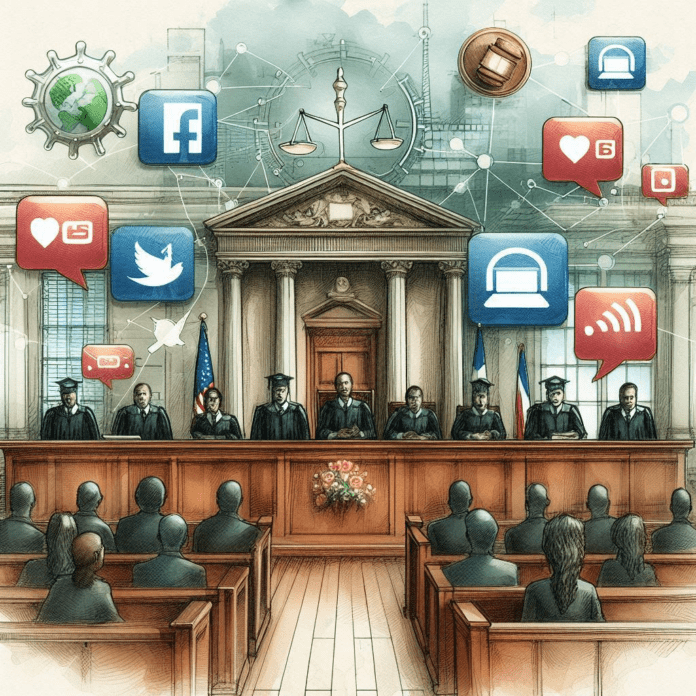In a significant decision, the U.S. Supreme Court has ruled against efforts to limit how federal officials engage with social media platforms. The case, known as Murthy v. Missouri, centered on allegations that the Biden administration pressured companies like Facebook and Twitter to remove posts it deemed problematic.
Background and Legal Challenge
The lawsuit, brought by Missouri and Louisiana officials along with individual social media users, claimed that federal agencies were operating a “censorship enterprise.” They argued that the government’s interactions with social media companies violated the First Amendment by influencing content moderation policies related to public health and elections.
Supreme Court’s Decision
In a 6-3 decision, the Supreme Court dismissed the challenge, citing lack of legal standing by the plaintiffs to bring the case. Justice Amy Coney Barrett, writing for the majority, emphasized that social media platforms have their own content moderation policies independent of government influence. The Court found that the challengers failed to prove a direct connection between federal directives and the companies’ decisions to remove content.
Barrett noted that while government officials may have advised on content moderation, the platforms exercised independent judgment in enforcing their policies. This decision rebuffed lower court rulings that restricted federal officials from influencing social media companies on content decisions.
Dissenting Opinion
Justice Samuel A. Alito Jr., joined by Justices Clarence Thomas and Neil M. Gorsuch, dissented from the majority. Alito criticized the Court for overlooking the free speech implications, arguing that the government’s involvement in content moderation amounted to coercion. He warned that the decision sets a precedent for future government interference in public discourse.
Implications and Future Outlook
The Supreme Court’s ruling has implications for how the government can engage with social media platforms, especially in issues of public health and election integrity. The decision underscores the complexity of balancing free speech rights with government efforts to combat misinformation and disinformation online.
The case highlighted tensions over whether tech companies should act as agents of the government in regulating speech. It also comes amidst broader debates on the role of social media in shaping public opinion and discourse during critical times like elections.
While the Supreme Court’s decision allows federal officials to continue interacting with social media platforms, it leaves unresolved questions about the boundaries of government influence on online speech. The ruling reaffirms the importance of the First Amendment while acknowledging the evolving landscape of digital communication and regulation.
This decision is likely to influence future legal battles and policy debates surrounding the intersection of technology, free speech, and government oversight in the digital age.


